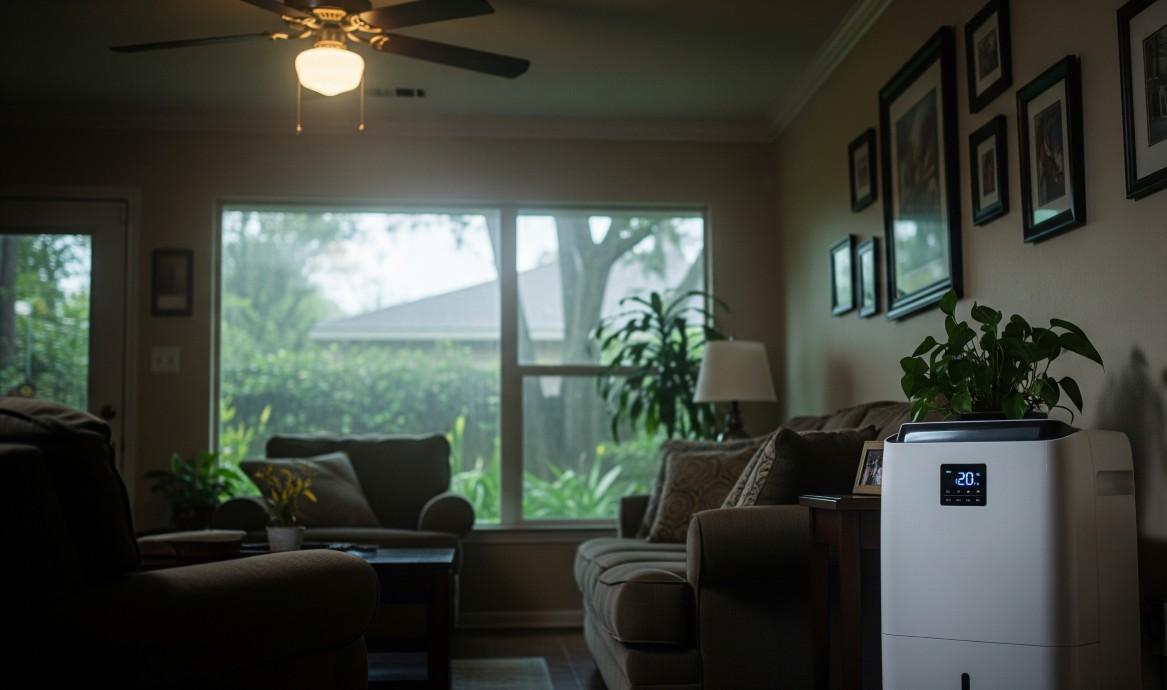Discover the best dehumidifiers of 2025 for basements, bedrooms, and whole homes. Improve air quality and protect your Houston home today.

Humidity problems are common in Houston and surrounding areas. Too much indoor moisture can lead to mold, musty odors, condensation on windows, and even structural issues in your home. For families dealing with allergies or asthma, damp air can make symptoms worse. That’s why finding the best dehumidifier for your living space is not just about comfort — it’s about health and long-term protection.
A good dehumidifier removes excess moisture, balances indoor humidity levels, and helps your air conditioning system work more efficiently. Whether you need one for a basement, bedroom, or the whole house, today’s models come in different sizes and technologies designed to handle specific situations.
In this guide, we’ll cover the best dehumidifiers of 2025, breaking them down by category, performance, and features that make them stand out.
Basements often struggle with high humidity because they’re underground and poorly ventilated. A basement unit should have a strong water removal capacity, continuous drain options, and a durable pump system. Look for models rated for at least 50–70 pints per day.
Bedrooms need quiet operation. A compact unit with low decibel levels works best for overnight use. Modern designs also include built-in air filters to help reduce allergens while lowering moisture.
For bigger homes in Houston, a whole-house dehumidifier is usually the smartest choice. These systems can be integrated with your HVAC. If you’re considering installation, the AC Install services from Champion and Nash can help with proper setup.
Energy-efficient models are designed to use less electricity while running continuously. The best dehumidifier in this category will carry an Energy Star certification and feature smart sensors that adjust performance automatically.
Measured in pints, capacity tells you how much moisture the unit can remove in 24 hours. Larger spaces or damp basements will require a higher-capacity model.
If you don’t want to empty a water tank daily, choose a dehumidifier with a continuous drain hose or built-in pump.
Consider where you’ll use it. A unit for the living room or bedroom should stay under 50 decibels for quiet operation.
When your dehumidifier complements your cooling system, it can reduce strain on your AC. If your unit still struggles with cooling, check the AC Repair services offered by Champion and Nash.
For homes that feel persistently damp, here’s a resource from Homes & Gardens on why your house feels damp.
Perfect for Houston homeowners with large square footage. This system connects directly to your ductwork, pulling moisture from every room. It’s one of the best dehumidifiers for consistent humidity control.
Designed for damp basements, this model can remove up to 70 pints per day and comes with a built-in pump. It prevents water accumulation that leads to mold.
This compact model is whisper-quiet and includes an air filter. It’s ideal for families who need peaceful sleep without the hum of a loud compressor.
Equipped with Wi-Fi and auto-humidity controls, this model reduces power consumption by adjusting output. It’s rated Energy Star Most Efficient 2025.
A lightweight and affordable option for apartments or smaller rooms. Easy to move, it includes a manual drain bucket with an auto-shutoff feature.
If your system is overdue for checkups, pairing your new dehumidifier with regular AC Maintenance can help keep your indoor air healthy year-round.
The right size depends on square footage and how damp the area is. Small rooms (up to 500 sq. ft.) usually need 20–30 pint models, while damp basements or large living areas might need 50–70 pints. For whole-house needs, a ducted system connected to your HVAC is often the best dehumidifier choice. If unsure, consult a local HVAC expert to assess your space.
Most people run their units daily during humid months. The goal is to keep humidity between 30–50%. Some best dehumidifiers include smart sensors that only activate when moisture rises. In Houston, you’ll likely use it throughout the summer since high humidity is constant.
No. While a dehumidifier reduces moisture, it doesn’t cool the air. Your AC lowers both temperature and humidity, but in very damp areas, a dehumidifier supports the AC. If your air conditioner isn’t cooling effectively, professional repair may be necessary.
Yes. Mold spores and dust mites thrive in damp conditions. By lowering humidity, the best dehumidifiers reduce triggers for asthma and allergies. Cleaner air helps families breathe better, especially children and seniors.
Portable units are best for single rooms or small spaces. Whole-house dehumidifiers are integrated into HVAC systems and cover the entire property. While costlier upfront, they provide long-term value by protecting your home and improving air quality.